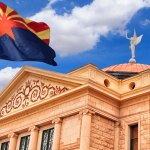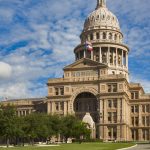When it comes to protecting citizens’ rights in court, having fair procedures in place is critical. That’s why the Goldwater Institute recently offered recommendations for updating Arizona’s Rules of Procedure for Special Actions—a “special” set of court procedures used when regular appeals are too slow, or under circumstances specified by the state legislature. These new rules, which were shaped in part by Goldwater comments, took effect Wednesday, on January 1.
Over the last several years, the Arizona Supreme Court has modernized various rulesets used in Arizona courts, including the Civil, Criminal, Civil Appellate, Protective Order, Family Law, Probate, and Juvenile Rules of Procedure. In 2023, the court ordered that the Rules of Procedure for Special Actions were next. The court appointed a task force comprised of a mix of judges and lawyers, chaired by Arizona Supreme Court Justice Kathryn King. The group then set to work to restyle and revise rules that had been adopted back in 1970 and only lightly amended since.
Special actions are a somewhat unique kind of lawsuit in Arizona that combines several types of cases from the old common law (mandamus, certiorari, and prohibition). They are often appropriate when a person needs to quickly obtain relief against a government official or body. Recognizing this, the state legislature has authorized in statute dozens of special actions that citizens can bring in cases covering topics ranging from the denial of access to public records to victims’ rights violations to disputes regarding the formation of government entities.
Since Goldwater is in the business of holding public officials and entities accountable, these important procedures can play a pivotal role in our work. Goldwater attorneys engaged with the task force starting with its very first meeting in September 2023 all the way through the final adoption of the new rules by the Arizona Supreme Court in late August 2024. The Institute submitted two formal written comments to the task force during the restyling and drafting process, and one formal public comment to the Arizona Supreme Court during the final approval process, in addition to other comments delivered orally at periodic task force meetings. For its input, the Institute was recognized by the task force in its petition to the Court as one of only two “contributing guests” from the public.
Goldwater’s primary objective was to help clarify key procedural differences between the more traditional “common law” kind of special actions and the more modern “statutory special actions” created by the legislature. The new ruleset accomplishes much of this, and also clearly distinguishes between special actions that start a case (“original” special actions) and those that continue a pre-existing case (“appellate” special actions).
Goldwater also urged the task force to preserve the ability to participate in special actions as amicus curiae, or “friend of the court.” Some commenters had advocated for cutting off amicus participation in special action proceedings in trial courts. Fortunately, the task force did not restrict amicus participation. As one member (a judge) aptly stated, “You can be a friend of any court!”
Goldwater also offered feedback on a proposal that would have significantly curtailed discovery (the ability to request and receive documents from opposing parties during litigation) in certain kinds of special actions. Had the original proposal been adopted, many lawsuits against the government would have been much more difficult. Ultimately, the task force softened some of the proposed language so that special action litigants can still use traditional factfinding tools when necessary.
The new revisions to the Rules of Procedure for Special Actions are a welcome update from the old rules. The 2025 rules are carefully organized, easily readable, contain helpful comments, and, most importantly, essentially preserve a level playing field for litigants. They should prove much more user-friendly for lawyers, courts, and the public.
Goldwater will continue to advocate for fair legal procedures, the rights of individual citizens, and for open and transparent government.
You can read our comments here, here, and here.
Click here to read how you can utilize public records laws to learn more about your local government.
Goldwater’s efforts to open government records to the public are highlighted here and here. And you can learn more about another of Goldwater’s ongoing special actions here.
Parker Jackson is a Staff Attorney at the Goldwater Institute.










